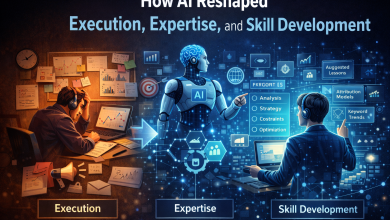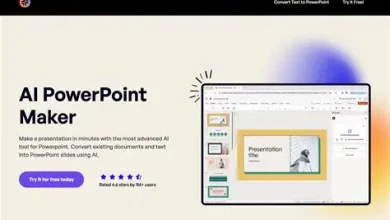
It’s no secret that artificial intelligence is accelerating at an astonishing pace. And while it continues to dominate headlines and divide opinion, one truth is becoming increasingly clear: AI has the potential to transform society for the better.
This potential extends far beyond commercial innovation or technological novelty. It underpins the very fabric of how we live and work. And, perhaps most critically, how we are served by the civic infrastructure we all rely on.
Nowhere is this more critical, or more urgent, than in our public services.
Healthcare, education, local government, social care: these are some of the services that underpin the wellbeing and prosperity of communities across the UK. Yet, they face mounting challenges. Workforce shortages, rising demand, strained resources and administrative burdens all threaten the quality and reach of delivery.
These issues are not new, but they are becoming increasingly unsustainable. What is new, however, is the transformative capability of AI to help address them.
Smarter systems for a strained state
Used responsibly, AI can support public service professionals in tangible, human-centred ways. It’s not about replacing people but empowering them – helping them to do their jobs more effectively, more sustainably, and with more time for what matters most.
Take education, for example. Teachers across the country are under pressure like never before. Excessive admin, lesson planning, and data reporting all chip away at the time they have for their pupils. AI offers a practical solution to reduce this burden. Tools powered by generative AI, for example, could help with creating lesson plans or summarising pupil progress, giving teachers more time to teach – and to care.
Healthcare presents a similar story. From patient backlogs to exhausted staff, the NHS is straining under pressure. But AI can ease some of that load. Automated notetaking during consultations, for example, can streamline the workflow for clinicians. Meanwhile, AI-assisted diagnostic tools can improve accuracy and efficiency, helping medical professionals make better-informed decisions, faster.
These are not theoretical ideas. They are early-stage solutions already being tested and, in some cases, implemented. And while concerns around privacy, data governance, and ethical boundaries remain entirely valid, the responsible development of these tools can lead to public sector transformation that is both meaningful and lasting.
The potential impact is significant. According to a recent survey conducted by the Alan Turing Institute, those working in the NHS estimate that time spent on administrative tasks could drop from 50% to 30% with the proper adoption of generative AI. That’s the equivalent of gaining back one day a week – a gain that could dramatically improve capacity, wellbeing, and ultimately patient outcomes.
From policy to practice: why this moment matters
The recent Spending Review and the UK Government’s £2 billion backing of the AI Opportunities Action Plan also marks a crucial step forward. It is a clear signal that national leadership recognises both the scale of the opportunity and the urgency of acting on it.
We are, in many ways, standing at a crossroads. Public services are being pushed to their limits. Those delivering them are asked to do more with less. Citizens’ needs are becoming more complex, and their expectations higher. Without intervention, the cracks will deepen. But if we act now – with clarity, intent and shared purpose – we can shape a future in which public services are not just preserved but strengthened.
That will require bold leadership, collaboration across sectors, and a willingness to embrace change. AI should not be seen as a threat to jobs, but as a force multiplier – one that enhances human effort and allows the people behind our public services to focus on where they make the biggest difference. Crucially, this must be done with the public interest front and centre: ethically, transparently, and in a way that builds trust.
The window to do so is open – but it won’t stay open forever. The pace of technological development is only accelerating. We must not let outdated processes or fear of disruption hold us back from seizing this opportunity.
The time to move from promise to practice is now. Our mission is rooted in progress, and we are committed to supporting the kind of practical innovation that enables AI to genuinely improve lives. The transformation of our public services is not just possible – it’s a necessity, and one that embracing the power and potential of AI will unlock.





